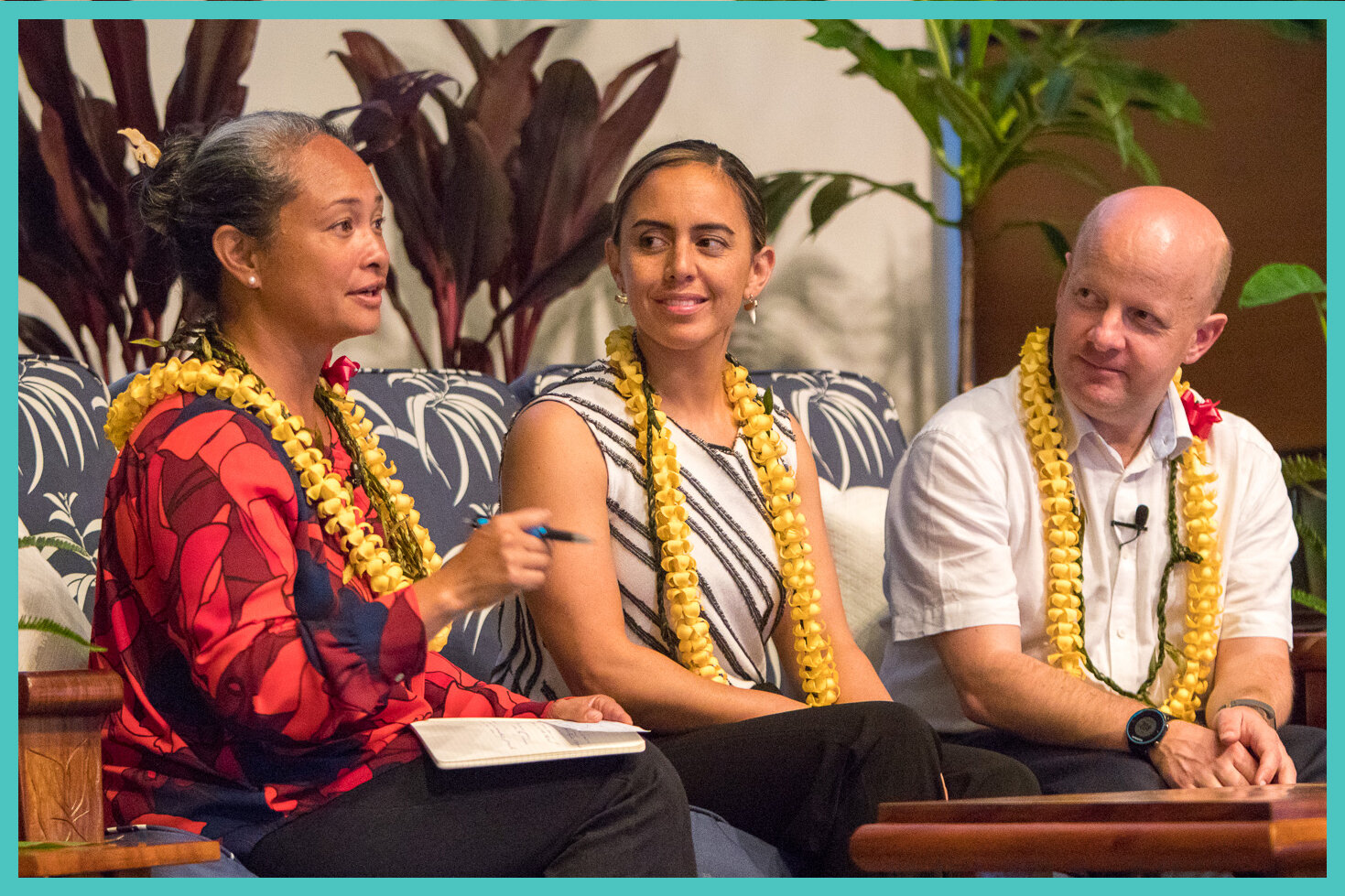by Dr. Dafydd Trystan
Originally published on December 9, 2019 by NATION•CYMRU.
My work with the Coleg Cymraeg over the past few months has included presentations on Welsh-medium and bilingual education in places such as Ystrad Mynach, Barry, Wrexham, Haverfordwest, Merthyr and Cwmbran.
You might forgive my surprise therefore when an invite dropped into my inbox to give a keynote talk at the University of Hawai’i in Hilo!
Having re-read the email to make sure I hadn’t misunderstood, my opportunity to make a small contribution to the Welsh Government’s programme to promote Wales internationally was clear, to both share our experiences in revitalising the Welsh Language and learn from other communities.
The Mokuola Honua international conference, in UNESCO's year of indigenous languages, brought language advocates from government, education, business and media from four continents and at least 20 language communities together to discuss our shared opportunities and challenges.
Hawai’i in recent years has seen a significant effort to revitalise ʻŌlelo Hawai’i (the w is pronounced like a v in English or f in Welsh). There are some 25,000 first language speakers and the first immersion nursery schools were established in the 1980s with primary schools following soon after
One of the highlights of the conference was a visit to Nāwahī School – a 3 to18 immersion school on the big island of Hawai’i with almost 500 pupils studying entirely through Hawaiian. Particularly inspiring were the students – one of whom was determined to qualify as a doctor so that she could care for patients in Hawaiian. Her eyes lit up when I shared the news with her that our first graduates who studied Medicine bilingually in Wales had just graduated.
Challenge
At the conference itself a range of aspects of language revitalization were discussed. Diego Tituana, an Ecuadorean Diplomat at the UN placed the UNESCO year of indigenous languages in context and set the challenge of promoting and sustaining linguistic diversity across the globe in the face of increasing globalization.
Hinurewa Poutu from Maori TV set out an inspiring account of how the bilingual TV channel in Aotearoa (New Zealand), is promoting the use of Maori internally but also as a key part of its TV output. She particularly focused on TUKU – a short form bilingual TV channel for young Maoris with social and engaging content which reminded me of Hansh, S4C’s service for young people in Wales.
Mahina Paishon-Duarte – a Hawaiian entrepreneur focused on the need for well-paid jobs alongside language revitalization and particularly her work at the Waiwai collective developing shared working and collaboration space in downtown Honolulu.
Our education theme focused on strategies to develop native language education and while at first sight, given the contexts of languages were so different, it wasn’t clear that there would be much to share, the remarkable commonality in experience and challenge, however, was clear.
A particular challenge identified was teacher recruitment and retention with a number of key ideas identified:
• Teacher pathway for year 11 and 12 – pupils (aspiring teachers) to be supported through University, to attain work experience at school during degree and to get University credits for their work in schools.
• Education-based on culture and philosophy (not merely a translation)
• Teacher pathway for adults including part-time routes to qualify and routes for teachers to learn Hawaiian
• Suitable incentives/payment for teachers training in native language and those who continue to teach bilingually
• Programmes to support services for pupils with complex and/or additional learning needs in native languages.
Such a set of challenges and possible responses seem familiar to us in Wales but were replicated across the globe in communities with lesser-used languages.
The conference concluded on a high note, with the award of the global Linguapax Award for linguistic diversity to Professor Larry Kimura – a distinguished Hawaiian linguist and activist and one of the founders of the immersion nursery school movement in Hawai’i.
While I sought to bring some hwyl and inspiration to proceedings our Hawaiian hosts certainly provided the Aloha! The opportunity to share our story – largely of success – in promoting and developing the Welsh language on an international stage was extremely rewarding.
But more so was the opportunity to share and learn from others. There were also moments where I realised how in many ways we are fortunate in Wales. On the last evening, I was speaking to Ciinkwia of the Miami tribe who described how he was playing a key part of the revival of his language – but from written records as the last first-language speaker had passed away some 30 years ago.
Linguistic diversity vastly enriches our planet. It is both our responsibility and opportunity to promote it, and in so doing share some excellent examples of what we’re doing in Wales, in the education field and beyond, to a wider global audience.




